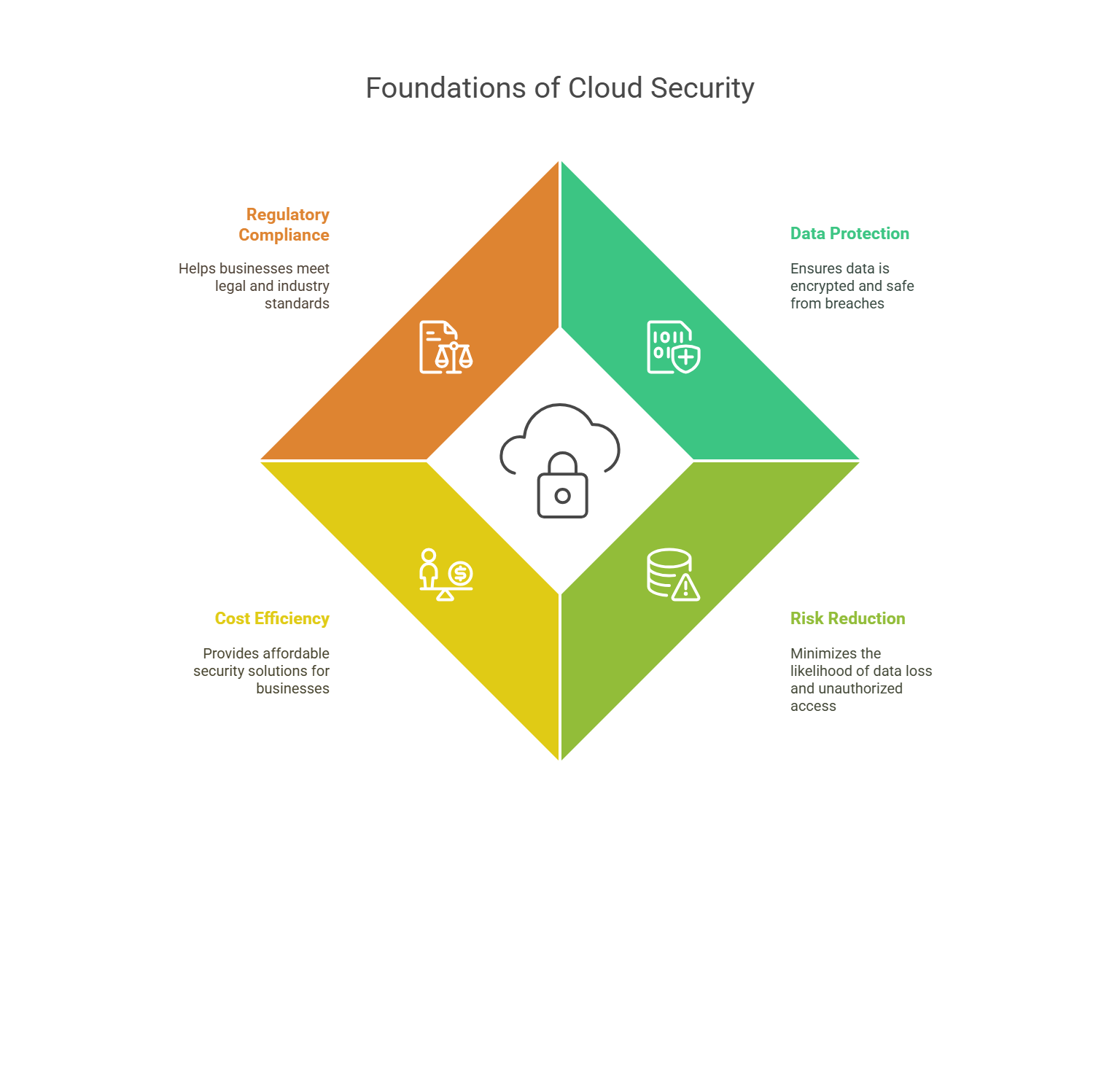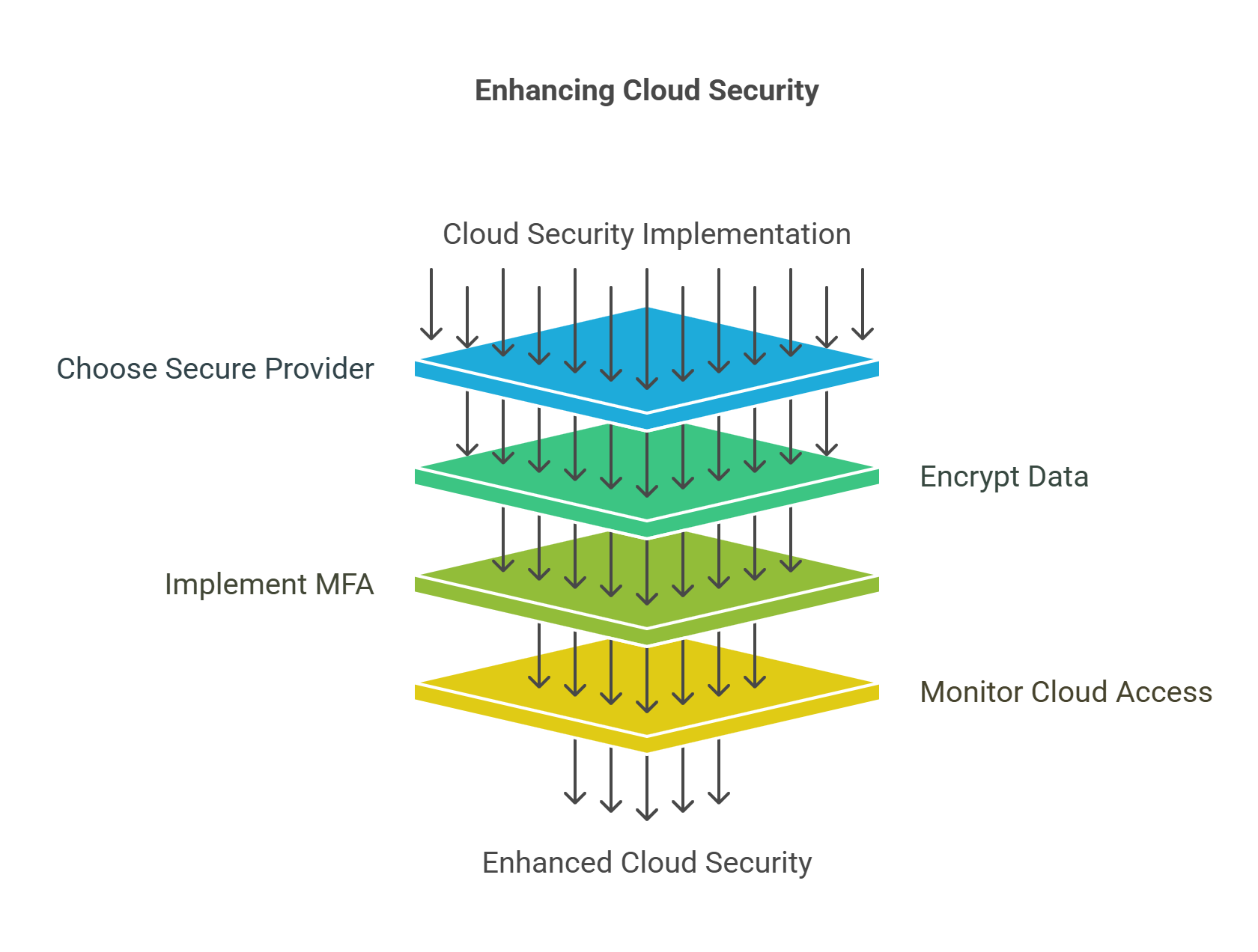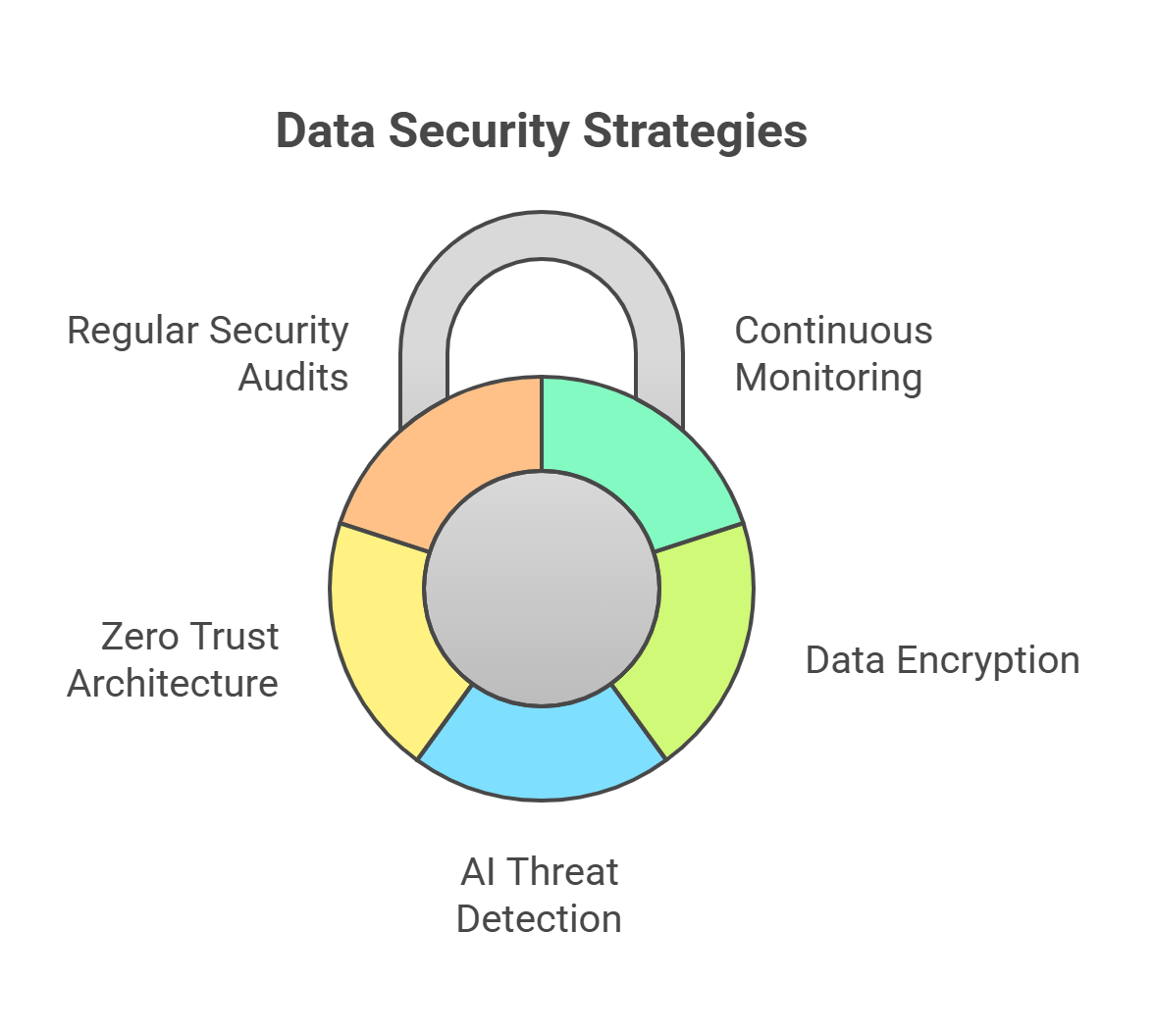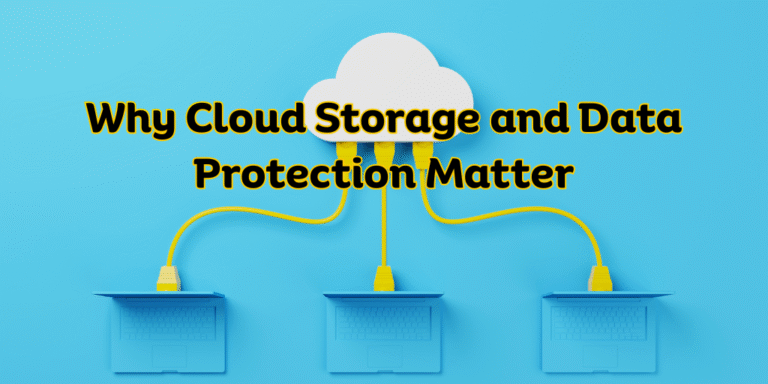More businesses are moving their data to the cloud, making security more important than ever. In this article, we’ll show you how to protect your data with cloud security solutions. We’ll cover simple steps, best practices, and compare different options to help keep your data safe.
Why Cloud Security Matters for Your Business
Cloud security protects your business data from breaches, loss, and unauthorized access. As more businesses use cloud services, securing sensitive data becomes a priority. Cloud security ensures your data stays safe by encrypting it, monitoring access, and blocking cyber threats.
Key benefits of cloud security:
-
Stronger data protection
-
Lower risk of losing data
-
Cost-effective solutions
-
Easier compliance with regulations

Top Cloud Security Solutions You Should Consider
To secure your data, you need the right tools. Here are some of the best cloud security solutions:
1. Cloud Access Security Brokers (CASBs)
CASBs are a security layer between your users and cloud services. They help with real-time monitoring, controlling who can access your data, and ensuring compliance.
2. Cloud Encryption
Cloud encryption keeps your data safe by turning it into unreadable code. Only people with the right key can unlock and access your data.
3. Multi-Factor Authentication (MFA)
MFA adds an extra layer of protection by asking users for more than just a password. It could include things like fingerprint scanning or sending a code via SMS.
Comparison Table 1: CASBs vs. Traditional Firewalls
| Feature | CASBs | Traditional Firewalls |
|---|---|---|
| Security Layer | Real-time monitoring | Network-level security |
| Protection Target | Cloud-based apps | Network infrastructure |
| Scalability | Highly scalable | Limited scalability |
| Deployment Time | Quick | Can be lengthy |
| Cost | Usage-based | Fixed upfront cost |
How to Implement Cloud Security in Your Business
Here’s how to protect your data in the cloud:
Step 1: Choose a Secure Cloud Provider
Pick a cloud provider that values security. Look for certifications like ISO 27001 and SOC 2 Type II.
Step 2: Encrypt Your Data
Encrypt your data both when it’s stored and while it’s being transferred. This stops unauthorized people from getting access.
Step 3: Use Multi-Factor Authentication
Only allow authorized users to access your cloud services by enabling MFA.
Step 4: Regularly Monitor and Audit Cloud Access
Check who is accessing your cloud services often. Set up monitoring to catch any unusual activity.

Comparison Table 2: Best Cloud Security Solutions vs. Traditional Security Systems
| Feature | Cloud Security Solutions | Traditional Security Systems |
|---|---|---|
| Cost | Pay-as-you-go | High upfront costs |
| Ease of Use | Easy to use | Hard to manage |
| Scalability | Highly scalable | Limited scalability |
| Security Features | Encryption, MFA | Firewall and antivirus |
| Maintenance | Managed by provider | Managed in-house |
5 Research-Backed Strategies to Secure Your Business Data
Here are five proven strategies to protect your data:
-
Invest in Continuous Monitoring
Studies show that businesses using real-time monitoring see 60% fewer data breaches. -
Ensure Data Encryption
A PwC study shows that 87% of companies with encrypted data experience fewer breaches. -
Embrace AI for Threat Detection
AI-powered tools can spot threats faster, cutting response time by up to 40%. -
Implement Zero Trust Architecture
Zero Trust means never trusting anyone by default, helping to prevent insider threats. -
Conduct Regular Security Audits
Regular audits help find and fix security gaps before they turn into serious problems.

7 Hidden Dangers of Not Securing Your Cloud Data
If you don’t secure your cloud data, it can lead to major issues, such as:
-
Data breaches
-
Loss of customer trust
-
Regulatory fines
-
Theft of intellectual property
-
Ransomware attacks
-
Business disruption
-
Legal consequences
Quick Answer Box
What is the best way to secure my cloud data?
To secure your cloud data, use encryption, enable multi-factor authentication, and choose a trusted cloud provider with strong security measures.
Expert Predictions: Where Cloud Security is Heading in 2025
In 2025, cloud security will continue to evolve. Here’s what we can expect:
-
AI and machine learning for faster detection of threats
-
Automated security management to keep updates and patches running smoothly
-
Stronger regulations for cloud data storage
-
More privacy focus as global data protection laws get tougher
FAQs: Securing Your Business Data with Cloud Security Solutions
1. What are the best cloud security solutions for businesses?
The best solutions are cloud encryption, multi-factor authentication, and cloud access security brokers (CASBs).
2. How can I ensure my cloud data is secure?
Encrypt your data, use multi-factor authentication, and regularly check access.
3. Are cloud security solutions expensive?
Costs depend on the solution and your business size, but pay-as-you-go models offer flexibility.
Your Custom Cloud Security Implementation Plan
Here’s a simple plan to get you started:
Step 1: Assess Your Needs
Look at your current cloud setup and identify any weaknesses.
Step 2: Choose Your Cloud Security Solutions
Pick the right combination of encryption, CASBs, MFA, and AI monitoring tools.
Step 3: Train Your Team
Make sure your team knows how to protect data and follow best practices.
Step 4: Test and Monitor Continuously
Regularly test your security systems and monitor for potential threats.
Conclusion
Protecting your business data with cloud security solutions is critical for avoiding breaches, legal issues, and financial losses. With the right tools and strategies, you can keep your data safe and ensure your business continues to grow securely.


